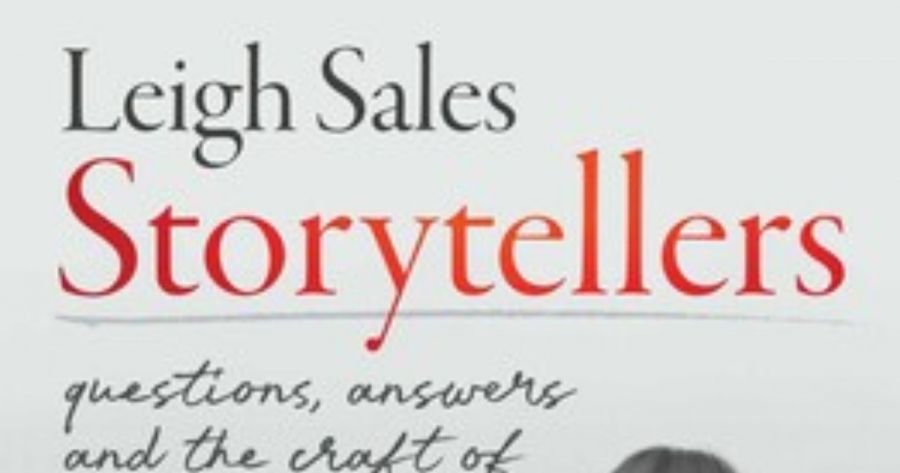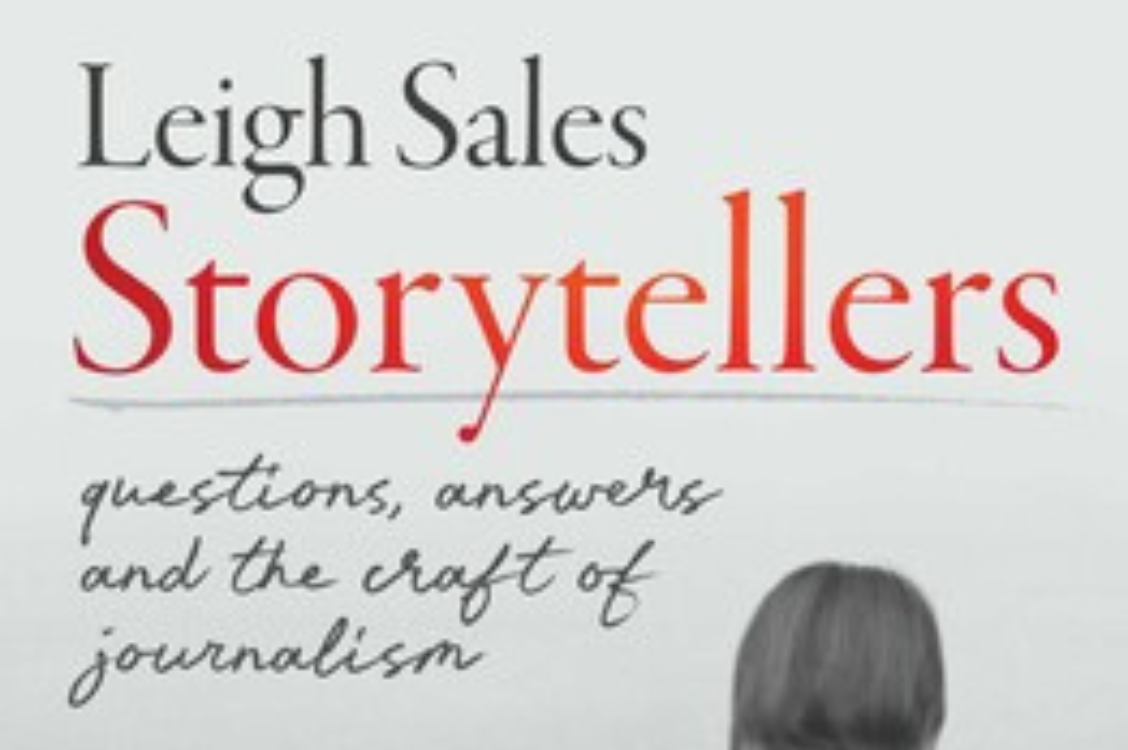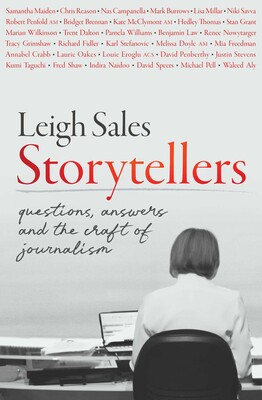
- Free Article: No
- Contents Category: Media
- Review Article: Yes
- Article Title: Tips and tricks
- Article Subtitle: The same old reverence for journalism
- Online Only: No
- Custom Highlight Text:
When the first season of Aaron Sorkin’s Newsroom premièred in Australia in 2012, Foxtel had its own onscreen news talent cut a series of promos. A bevy of ageless news anchors – all dense hairdos and blazing white teeth – talked admiringly of how the series portrayed their profession. Journalism, in their telling, was fast-paced, often self-righteous, occasionally fallible, but ultimately always a noble occupation that served the public’s interest. Leigh Sales’s new book, Storytellers, follows a similar line, with the content and even the cover art – a black and white photo of Sales at her news desk, shot from behind, à la Will McAvoy – evincing the same reverence for journalism. Implicitly, too, there is the same nostalgia for the days when everything was just a bit more straightforward.
- Featured Image (400px * 250px):

- Alt Tag (Featured Image): Patrick Mullins reviews 'Storytellers: Questions, answers and the craft' of journalism Leigh Sales
- Book 1 Title: Storytellers
- Book 1 Subtitle: Questions, answers and the craft of journalism
- Book 1 Biblio: Scribner, $36.99 pb, 320 pp
- Book 1 Cover Small (400 x 600):

- Book 1 Cover (800 x 1200):

Like more than a few of her colleagues, Sales is ambivalent about the university journalism courses that should be providing this. She notes the absence today of a textbook comparable to Robert Jervis’s News Sense (1985), which was the ‘bible’ during her studies at Queensland University of Technology in the early 1990s, and she rubbishes the use of theory-based academic work as a substitute. ‘I don’t know what any of that means,’ Sales writes of a phrase drawn from one paper given out by a friend and journalism academic, ‘but I can tell you this: it has zero to do with learning to be a good journalist.’
Admittedly, knowing what ‘hegemonic epistemologies and ontologies’ means is unlikely to be as immediately useful to a deadline-bound journalist as knowing how to ‘write to pictures’. But being able to reflect on how the tenets of modern journalism have been underpinned by Western views and beliefs – as that specific paper discusses, and as many university journalism courses also do, alongside their courses of practical experience – has a lot to do with becoming a good journalist, not in the least because of the prompt it provides to question the wisdom received via those tenets. The absence of such questions is the biggest let-down of Storytellers: it includes little interrogation of the profession and its current challenges that one might have expected from a journalist who has worked for a long period at the highest levels across multiple media in Australia and abroad.
Sales is unapologetic about this. Hers is not a book about media ethics, Rupert Murdoch, fake news, or any of the other issues that populate that catch-all genre, current affairs. ‘My focus in this book is entirely on the practicalities of the craft,’ she writes. ‘Where do story ideas come from? How do you make contacts? What does a good voiceover sound like? How do you make a one-minute video story compelling? How do you know when to interrupt a politician during an interview?’ If these concerns are niche, they are at least recurring and urgent for young journalists.
Storytellers offers in ample supply puckish and entertaining accounts of lives spent dealing with these concerns every day. Divided into ten sections focused on different areas of the profession, Sales uses a Q&A format to document her interrogating, wheedling, and prompting conversations with interviewees. Tips are sewn into the anecdotes like smuggled jewels. On one page, there is editor Fred Shaw discussing the use of progressive shots and detail to build a sense of character; on another, reporter Robert Penfold advises you drive, not fly, if the news is breaking less than five hours away. There is Samantha Maiden’s thoughts on the specific utility of getting the shits, and there’s Karl Stefanovic’s discussion of ‘sphincter-tightening nerves’. There’s Richard Fidler saying what to do when you realise an interviewee is a dickhead, and there’s Annabel Crabb talking about the real meaning of a column about nits. In the number of people mustered and the areas they discuss, Storytellers offers a flavour of how journalism is performed in Australia and the individual experience of doing it – including the emotional toll. Belying the stereotype of the cynical and hard-bitten reporter, Sales’s interviewees are open with her about their concern for the people they interview and write about, and the demands their profession puts on them to navigate fraught ethical dilemmas.
The fact that her interviewees go there underscores Sales’s ability to adapt to the dynamics of the discussion at hand. Her interview with Laurie Oakes is conspicuous for the direct and concise questions she asks him – aping, it seems, his recommendation for questions of that kind. In her interview with an excitable Benjamin Law, however, Sales confesses that she has not asked him a single thing on her list of questions. Law replies with a joke but then, more seriously, muses that sometimes he has to ‘hold space’ for his interviewees to tell their stories, for them to lead the interview – just as, the reader sees, Sales has held space for Law.
It is one example in a book that may prove useful for new journalists. If not as provocative or nourishing as one might have hoped, Storytellers follows yet again in the vein of Sorkin’s Newsroom, where reverence and nostalgia made for a show concerned with what journalism was, rather than what it could be.


Comments powered by CComment